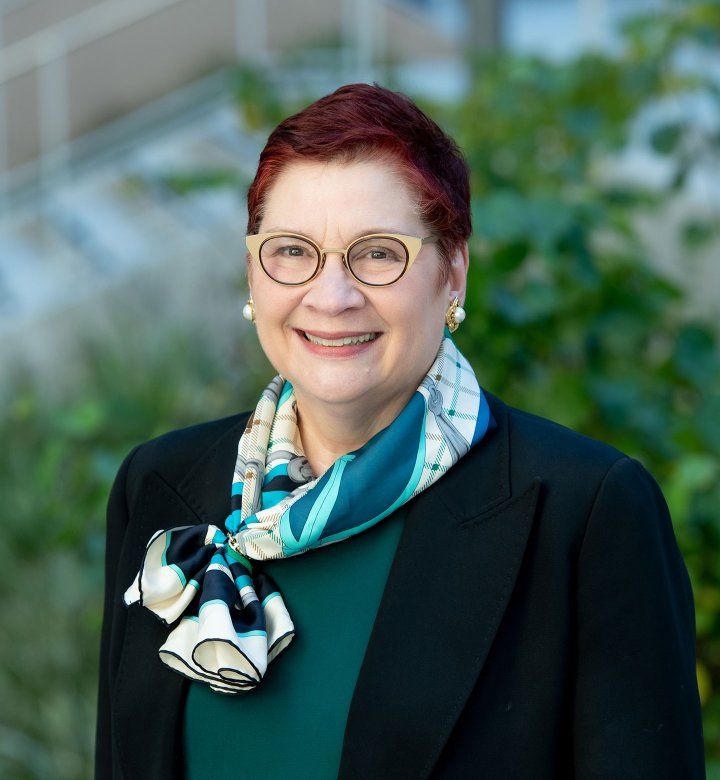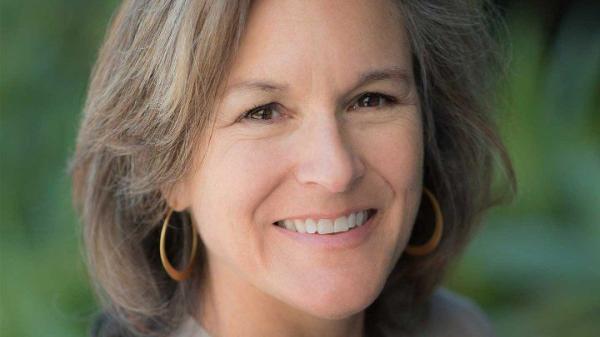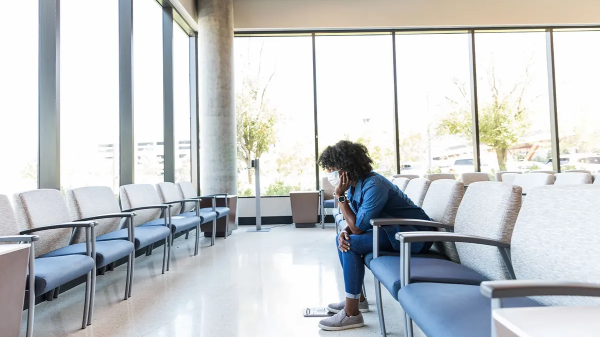A National Leader in Education Who Seeks Innovation to Address Complex Problems
By Laura Kurtzman Image by Barbara Ries
Catherine Lucey, MD, a key campus leader who has been instrumental in UCSF’s success over the past decade, has been named executive vice chancellor and provost, beginning in January 2023.
As vice dean for education and executive vice dean of the School of Medicine, Lucey has helped oversee every aspect of UCSF’s mission: education, patient care, research and public service. She is a practicing physician, a leading national voice on medical school education and a key member of the leadership group under Dean Talmadge E. King, Jr., MD.
Lucey co-chaired the highly successful UCSF: The Campaign, led a redesign of the medical school curriculum and co-chaired the Differences Matter initiative. When the pandemic struck, she was part of a core group that found ways to sustain UCSF’s educational mission through the disruption.
“Catherine is a brilliant, engaging person, and she has represented UCSF in its very best light,” said Chancellor Sam Hawgood, MBBS, who recruited her to UCSF in 2011 as vice dean for education, when he was still dean of the School of Medicine. “She understands the drive toward collaboration in science that propels so much of our best work. She is an advocate for faculty and learners, for women, for diversity and for equity, and I very much look forward to working in partnership with her.”
Dedication to UCSF
Throughout her career, Lucey has focused on the science of learning, gleaning insights from cognitive psychology, neuroscience and systems thinking. She has served for many years in key roles at the Association of American Medical Colleges (AAMC). At UCSF, she led the development of the new Bridges curriculum, which has become a national model for medical education.
Catherine is a brilliant, engaging person, and she has represented UCSF in its very best light. She understands the drive toward collaboration in science that propels so much of our best work.
Chancellor Sam Hawgood, MBBS
Before coming to UCSF, Lucey was interim dean of medicine at The Ohio State University and a strong contender for the permanent position. Given the small number of women deans in American medical schools, she said, many colleagues counseled her against leaving in the middle of the job search. But she followed her instincts and returned to UCSF, where she had trained as a physician and served as chief resident at San Francisco General Hospital at the beginning of the AIDS epidemic.
“Being at UCSF during the AIDS pandemic changed the way I look at medicine,” she said. “What we saw was transdisciplinary partnerships. Basic scientists were investigating the immune dysfunction. Clinical trials were going on. The social and behavioral scientists were working to understand the human component and support community outreach. And in a relatively short time, we went from facing an unknown pathogen with a rapid and uniformly fatal outcome, to a chronic disease we could manage.”
New Models for Success
The COVID-19 pandemic had a similar effect, creating research opportunities across the University and far beyond, for example with the recent partnership to form the Institut Pasteur-UCSF QBI Center of Excellence in Emerging Infectious Diseases.
Though forged in crisis, she said, these models can evolve into long-term partnerships to address complex and multifaceted issues, whether they are longstanding health disparities or emergent global threats.
“We have to be prepared for the next pandemic,” she said. “And we must continue to transform. We have a major responsibility to educate the best and most representative health care and biomedical workforce for the state and the nation.”
She cited another important collaboration, the new joint UCSF-UC Berkeley PhD program in computational precision health. The program, which enrolls its first cohort in the fall of 2023, aims to train a new generation of researchers to utilize health care data to improve care.
Lucey said it will be collaborations like these that enable the highest quality of research, education and patient care at UCSF.
“I see this opportunity as a way to serve the academic community at UCSF, so they can get to the creative work that makes us a leading center of biomedical education, clinical and basic science research,” she said. “We need to be thinking across all of our mission areas and schools to meet the health care challenges of our time.”





